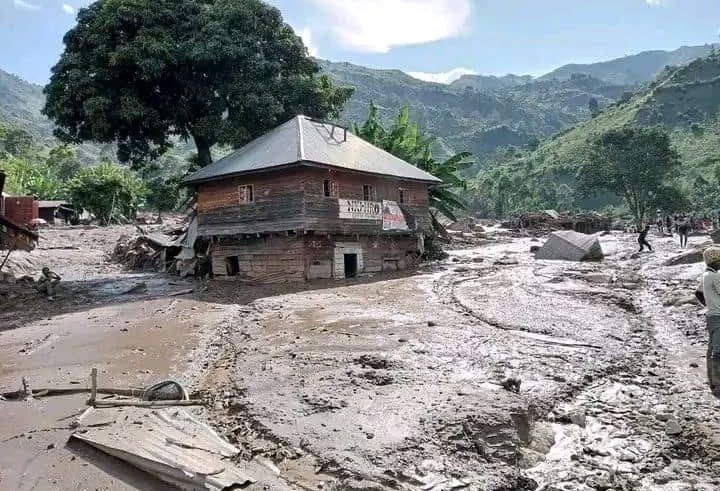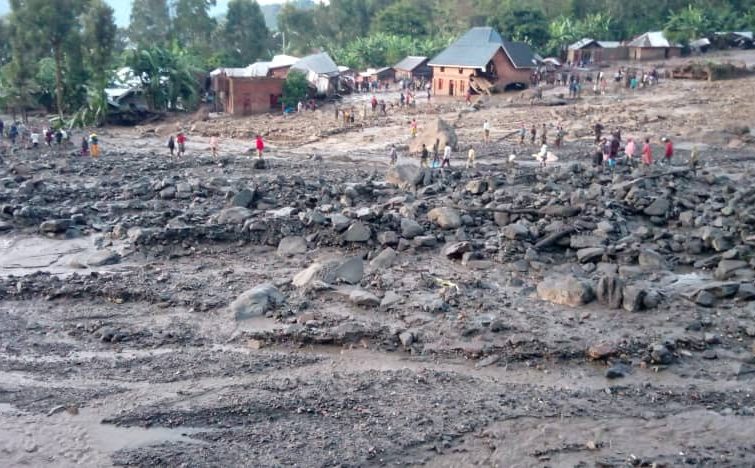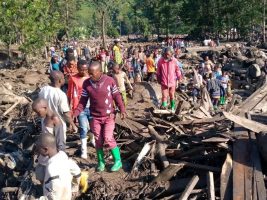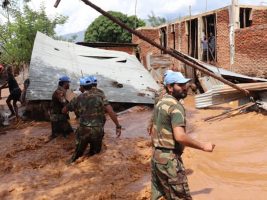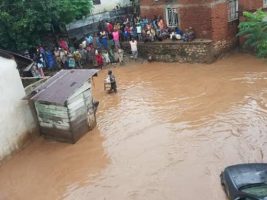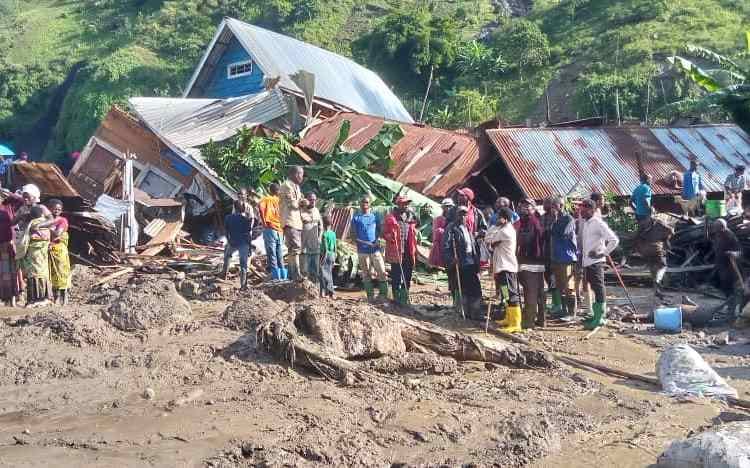
Where there used to be life now one sees only an expanse of sand and stones that has buried entire villages. And huge mass graves where the bodies of victims are piled in gray or blue body bags. All around is a traumatized and stunned population. The number of victims so far ascertained is 400, but in the last few hours, according to some local community estimates, there is talk of at least 4,300 missing. There is very little hope of finding them. Entire families are now dead; almost all the survivors have lost some family members. Survival will be very hard for them. Only the Red Cross has arrived on the scene but everything is missing: food, medicines, drinking water. This is the situation in the villages of Bushushu and Nyamukubi (Kalele area) in the troubled South Kivu region of the Democratic Republic of Congo. Late in the afternoon of Thursday, May 4, it began to rain as it usually does during this season. But the torrential rains were stronger than usual and caused the three rivers in the area to overflow, in addition to landslides and mudslides. The area where the disaster occurred is on the shores of Lake Kivu, where civilians fleeing massacres by Interahamwe paramilitary militias had taken refuge in 2004. Precarious housing was built in risky areas on a hillside. The village of Bushushu is 70 km north of Bukavu, on Route nationale No. 2 that connects Bukavu to Goma. Yesterday, July 8, a day of national mourning was declared throughout the country.
- foto dai social (A.Desmane)
- foto dai social (J.Kabali)
“Caritas Bukavu is already on the ground and is carrying out an initial evacuation of the displaced and trying to deliver first aid,” Boniface Nakwagelewi ata-Deagbo, director of Caritas R.D. Congo, told Sir, confirming the official estimates but also warning that “the final tally will surely be in the thousands of people dead.
Parishes in the area have also been hit by flooding. There will be casualties among priests, catechists, teachers”.
- foto dai social (A.Desmane)
- foto dai social (A.Desmane)
“People in the villages are traumatized,” he said. “Most have lost family members, children, there are children left without their parents. The houses are all buried, people no longer own anything. We have asked to coordinate with others on the ground for a coordinated evacuation.”
The tragedy within the tragedy is that, apart from the Red Cross and Doctors Without Borders, there are no organized relief agencies and no humanitarian aid. Msf admitted to the hospital 16 critically injured people who arrived by boat from Nyamakubi village and donated body bags to the Bushushu health center.
“The population is left to its own fate.
Everything is missing: food, medicines, water, until yesterday nothing had arrived”,
laments the director of Caritas R.D. Congo, who is ready to appeal to partners to support Caritas Bukavu in its efforts. “We need to help the survivors and make sure they don’t lose their lives due to the lack of aid,” adds the national Caritas head. “It will not be easy because there are many problems in our country, including the war with the M23 movement in South Kivu and floods in other territories. It will be a big challenge.”
- foto dai social
- foto dai social (K.Kibambe)
- foto dai social (K.Kibambe)
This is not the first time such events have occurred. In 2014 and also two years ago there was a similar disaster in those areas. “Although it has happened before, the phenomenon is exacerbated by climate change and the presence of illegal construction in areas where construction would not be allowed,” he concludes.



